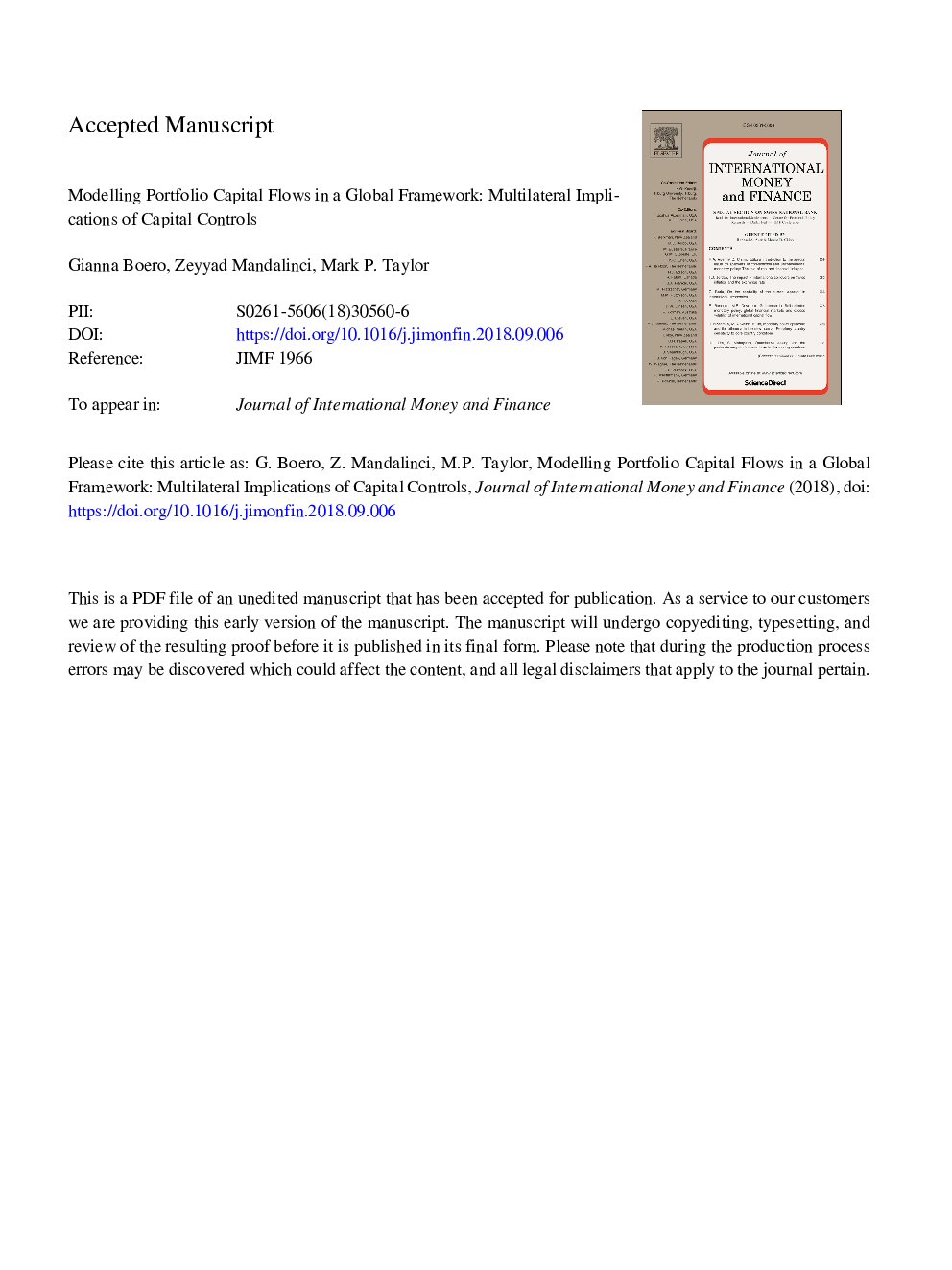| Article ID | Journal | Published Year | Pages | File Type |
|---|---|---|---|---|
| 11020455 | Journal of International Money and Finance | 2019 | 35 Pages |
Abstract
In the aftermath of the global financial crisis, many emerging market countries resorted to capital controls to tackle the excessive surge of capital inflows. A number of recent research papers have suggested that the imposition of controls may have imposed negative externalities on other countries by deflecting flows. Our aim in the research reported in this paper is to assess the efficacy of capital controls and potential deflection effects on other countries by constructing a comprehensive global econometric model which captures the dynamic interactions of capital flows with domestic and global fundamentals. The results suggest that capital controls are effective for some countries in the short run, but have no lasting effects. Moreover, there is only limited evidence of deflection effects for a small number of emerging market countries.
Related Topics
Social Sciences and Humanities
Economics, Econometrics and Finance
Economics and Econometrics
Authors
Gianna Boero, Zeyyad Mandalinci, Mark P. Taylor,
